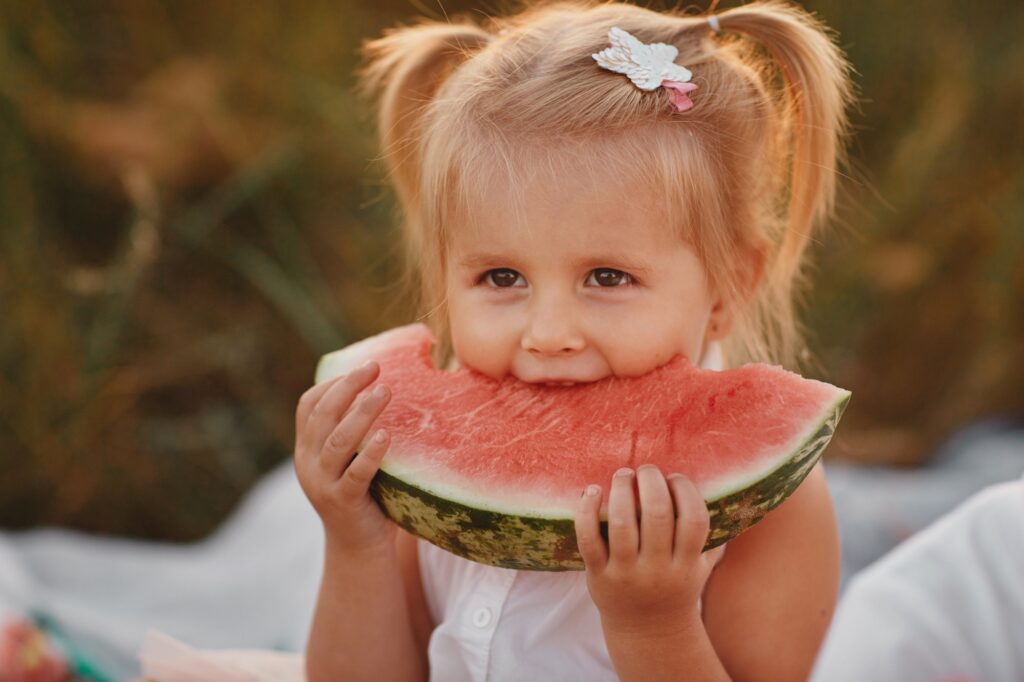Raising Intuitive Eaters
Sub Header
Did you know that feeding practices used by parents and caregivers while children are young influence their lifelong eating behaviours?
Have you ever found yourself telling your child that they need to finish everything on their plate before they get dessert or using food as a reward to motivate your child to complete household chores? Or maybe you tell your child they cannot eat certain foods because they are unhealthy?
While parents and guardians have good intentions, controlling a child’s eating can be harmful long-term. When we restrict what they eat, it makes them want those items even more, which can lead to overindulging when there is free access to food. Children can also be turned off of foods that they have been pressured to eat.
Are you now wondering what you can do instead?
Try exposing your child to foods repeatedly even when they don’t like them the first few times!
Be a role model! When children see their caregivers eating different foods and enjoying foods they desire, we are giving children permission to do the same.
Limit talk about calories and unhealthy foods in front of your children. They are impressionable and may begin to worry and prioritize those same things, which can lead to avoidant or restricted eating later on.
Encourage intuitive eating for both ourselves and our children! We want to respond to our body’s internal hunger and satiety cues.
Interested in learning more about intuitive eating and how to get there? Book an appointment with one of our disordered eating specialists today!

References:
Haycraft, E., Witcomb, G. L., & Farrow, C. (2020). The Child Feeding Guide: A digital health intervention for reducing controlling child feeding practices and maternal anxiety over time. Nutrition Bulletin, 45(4), 474–482. https://doi.org/10.1111/nbu.12445



